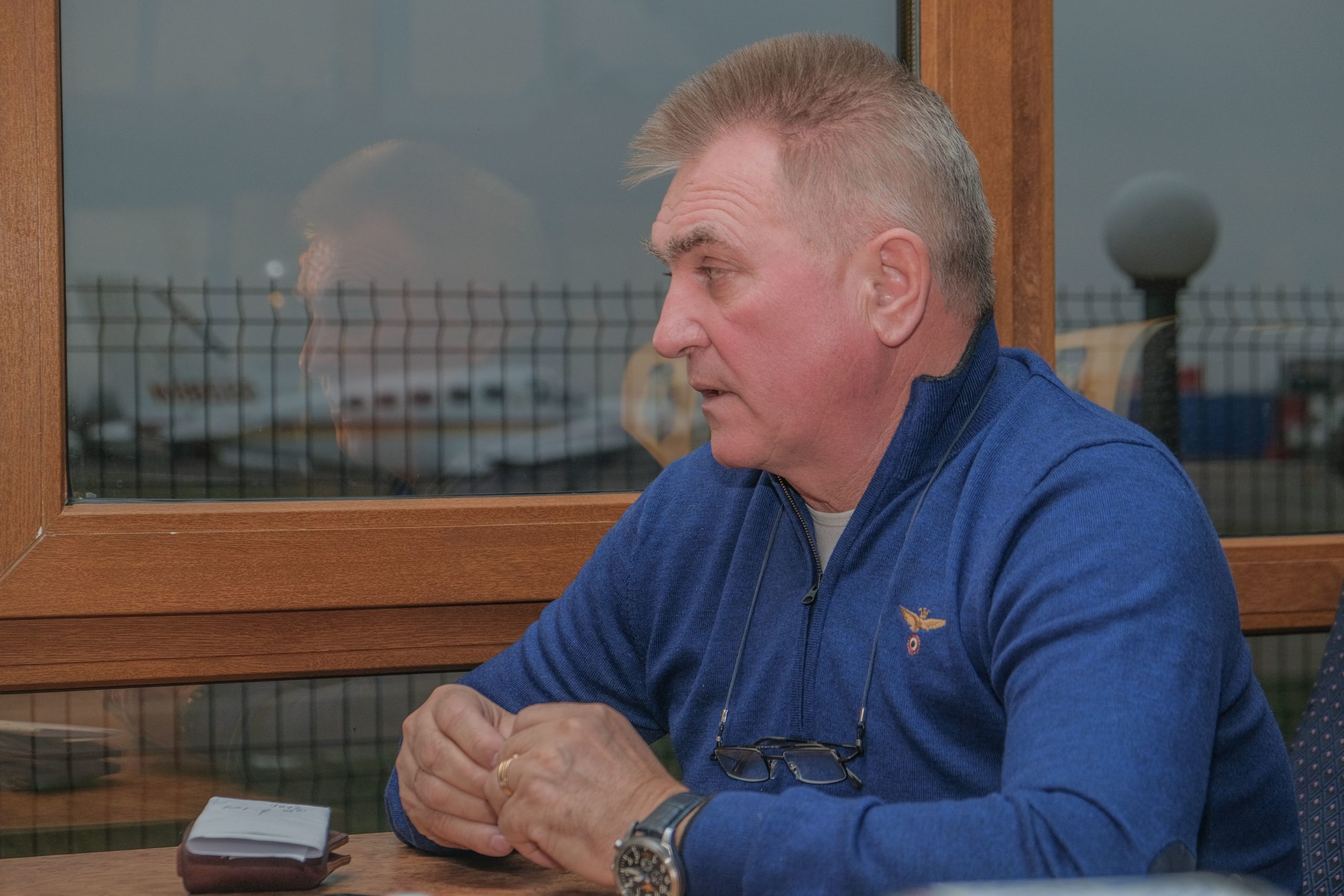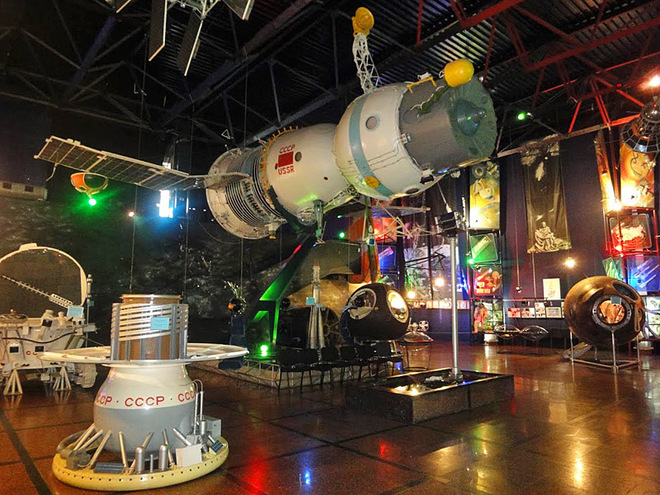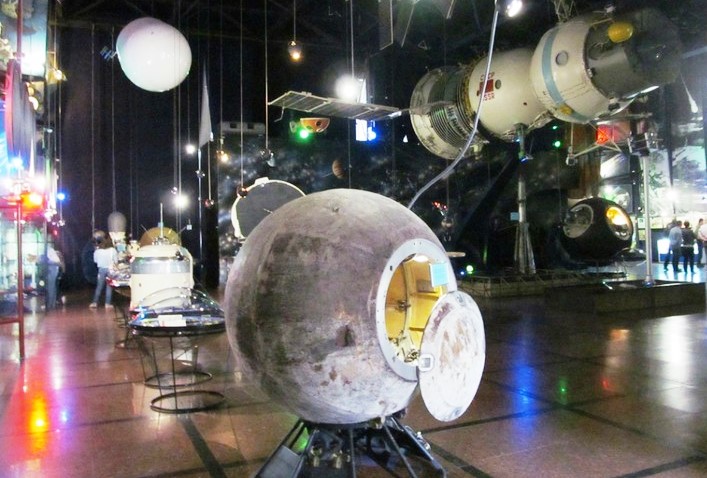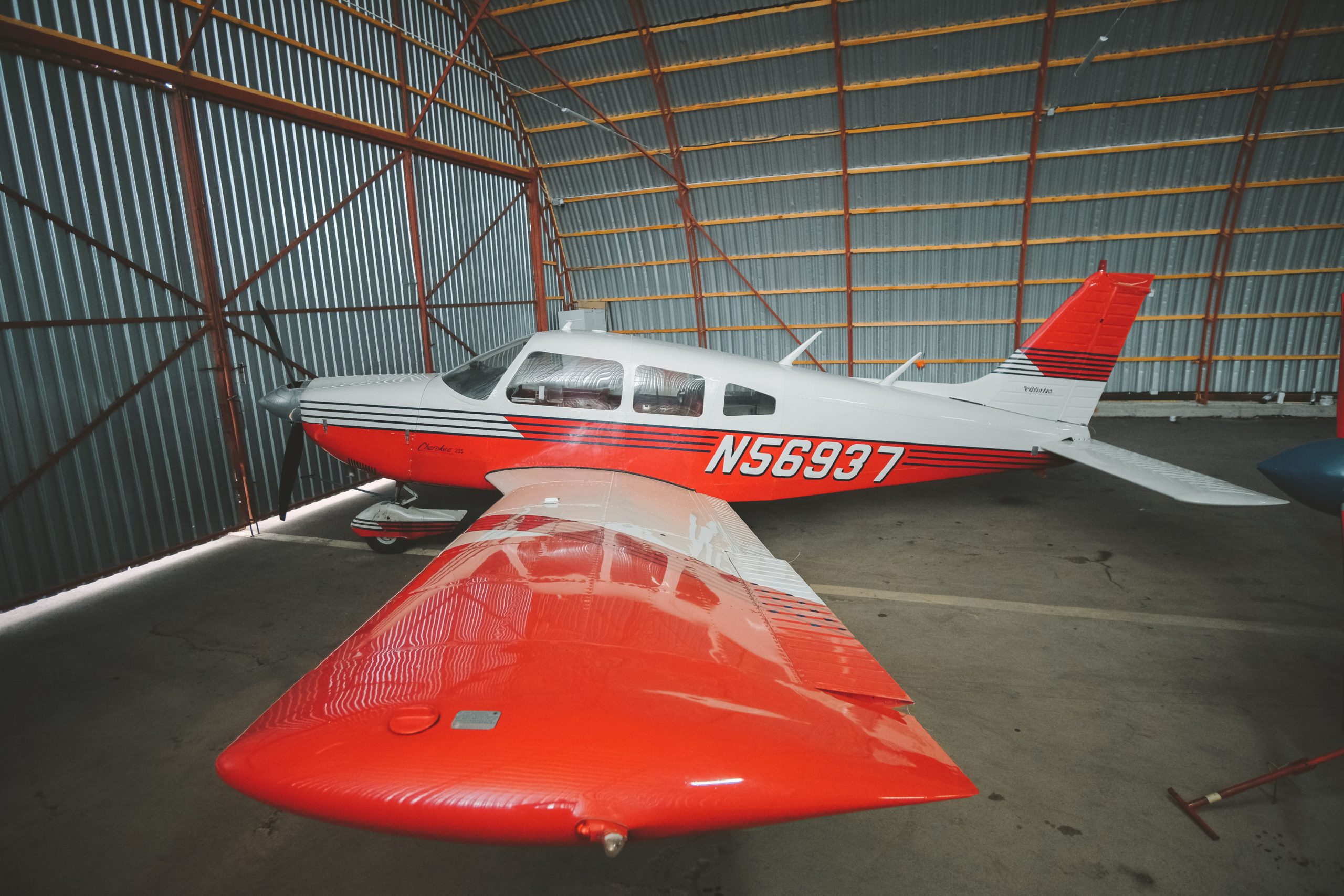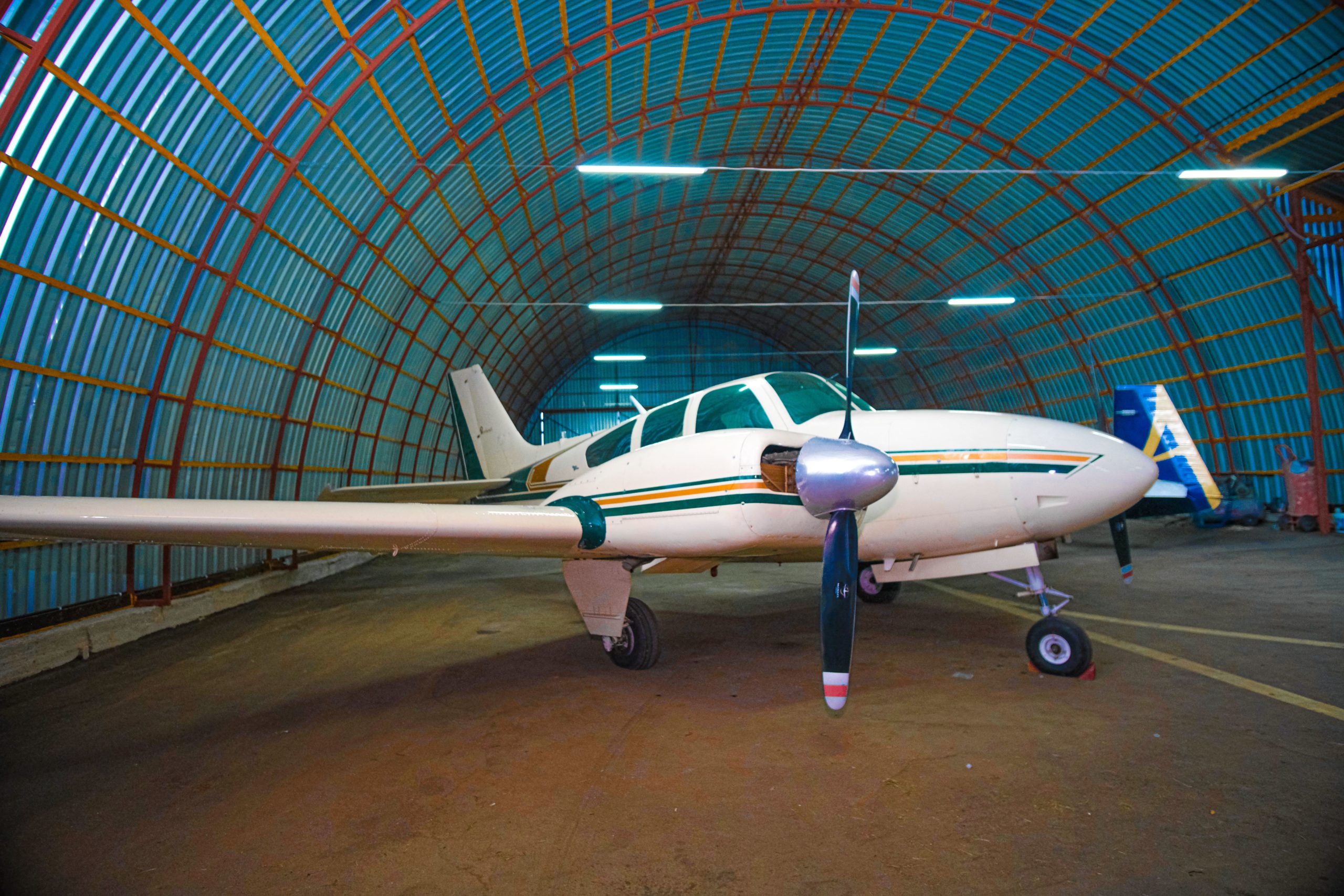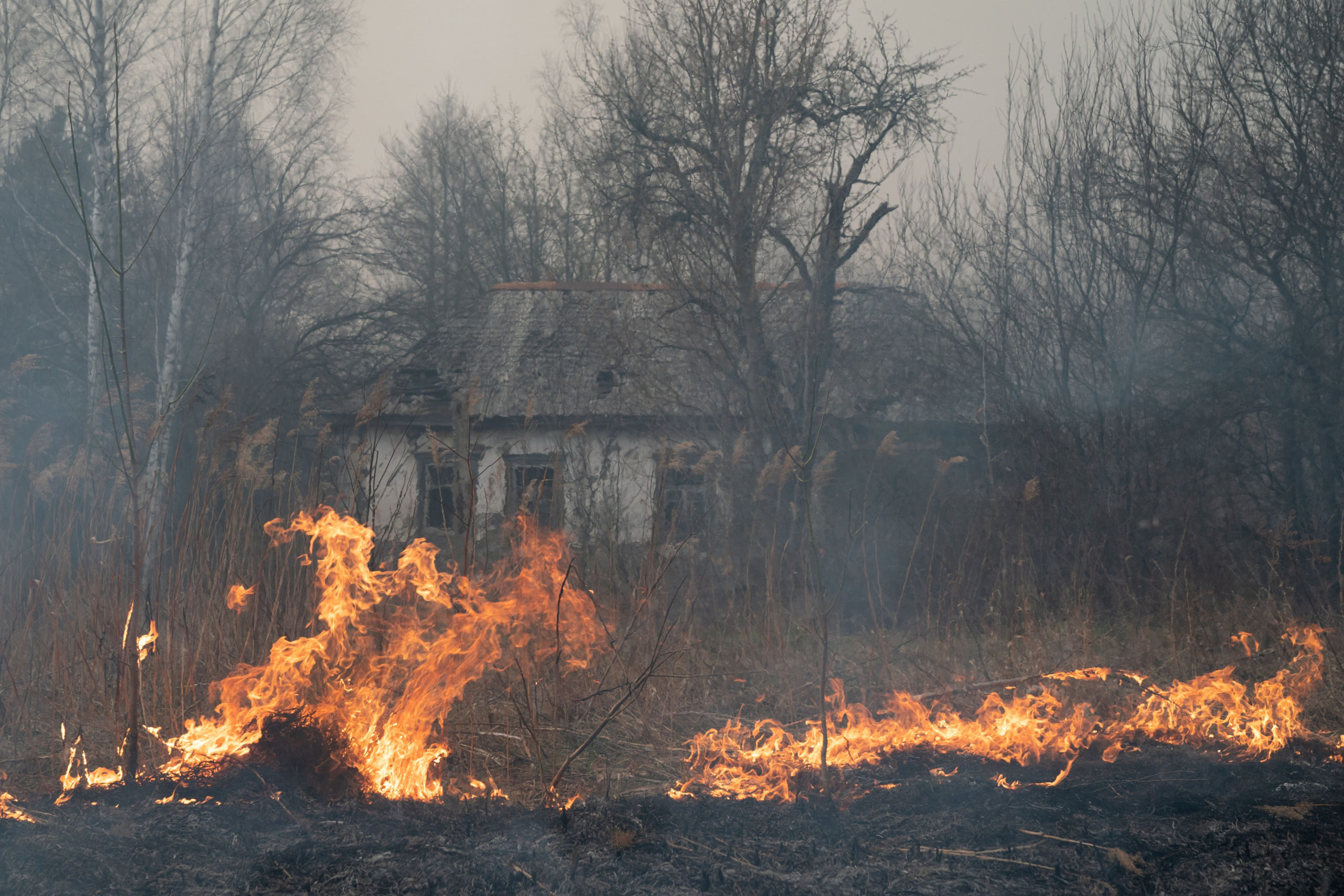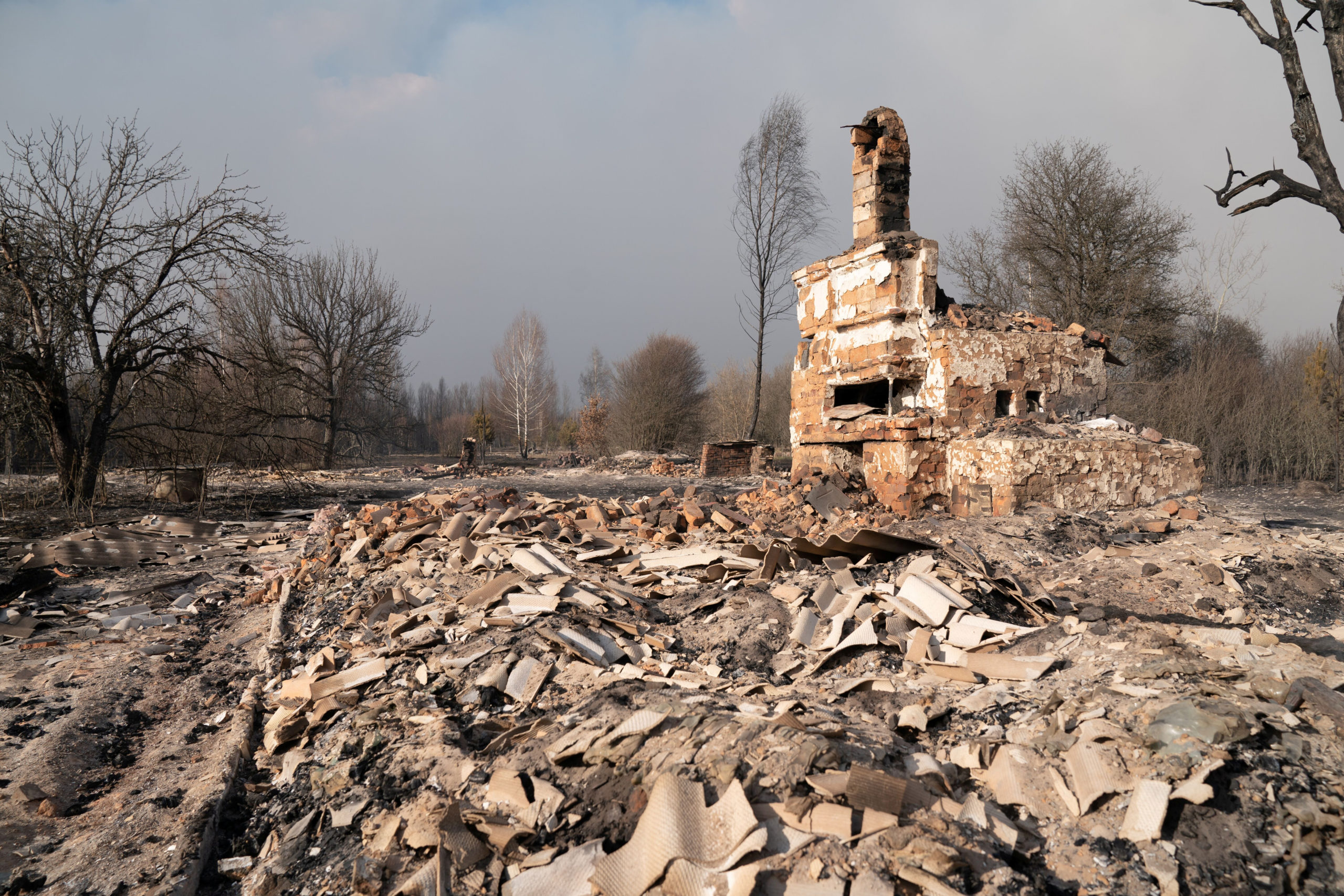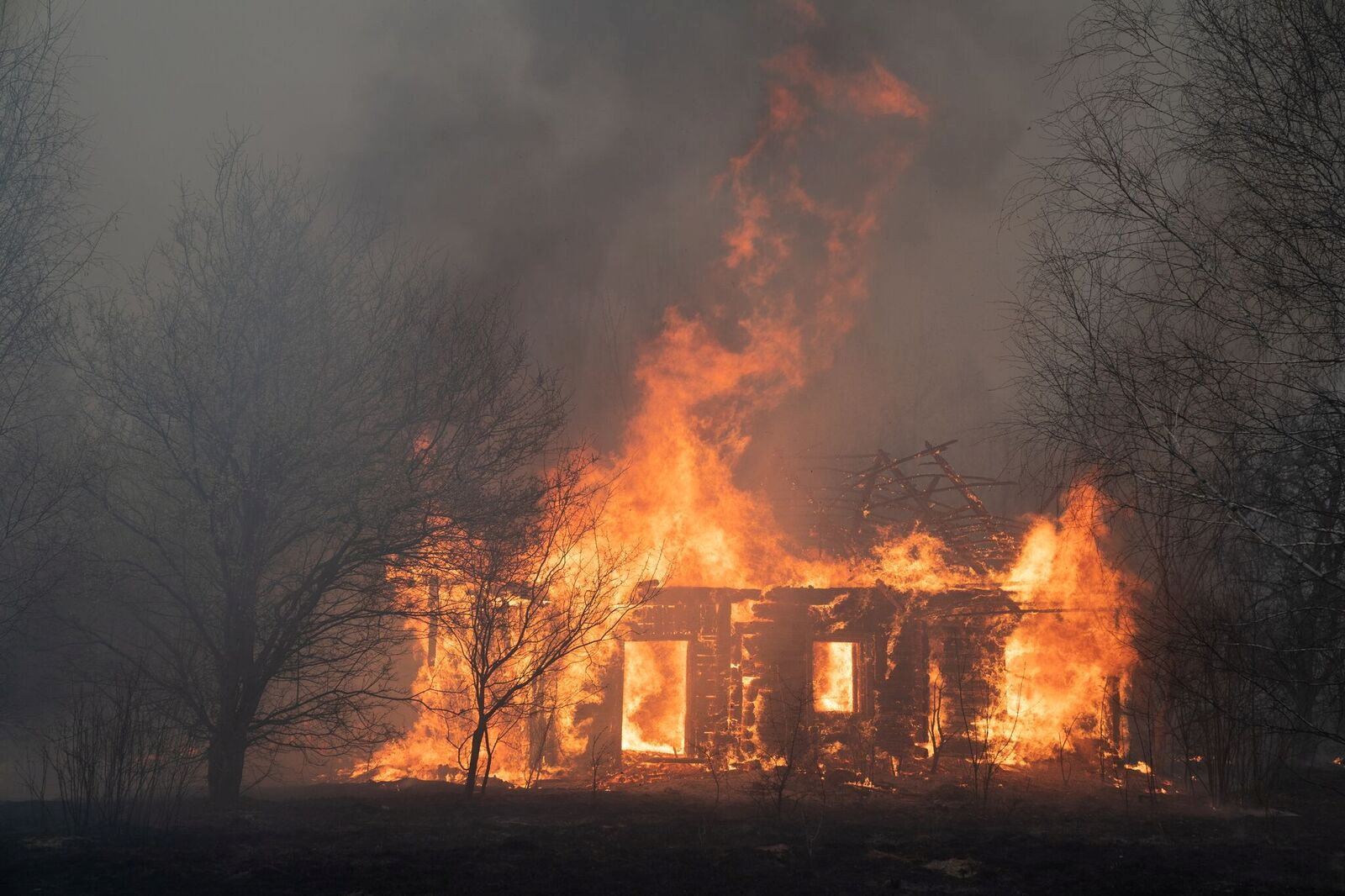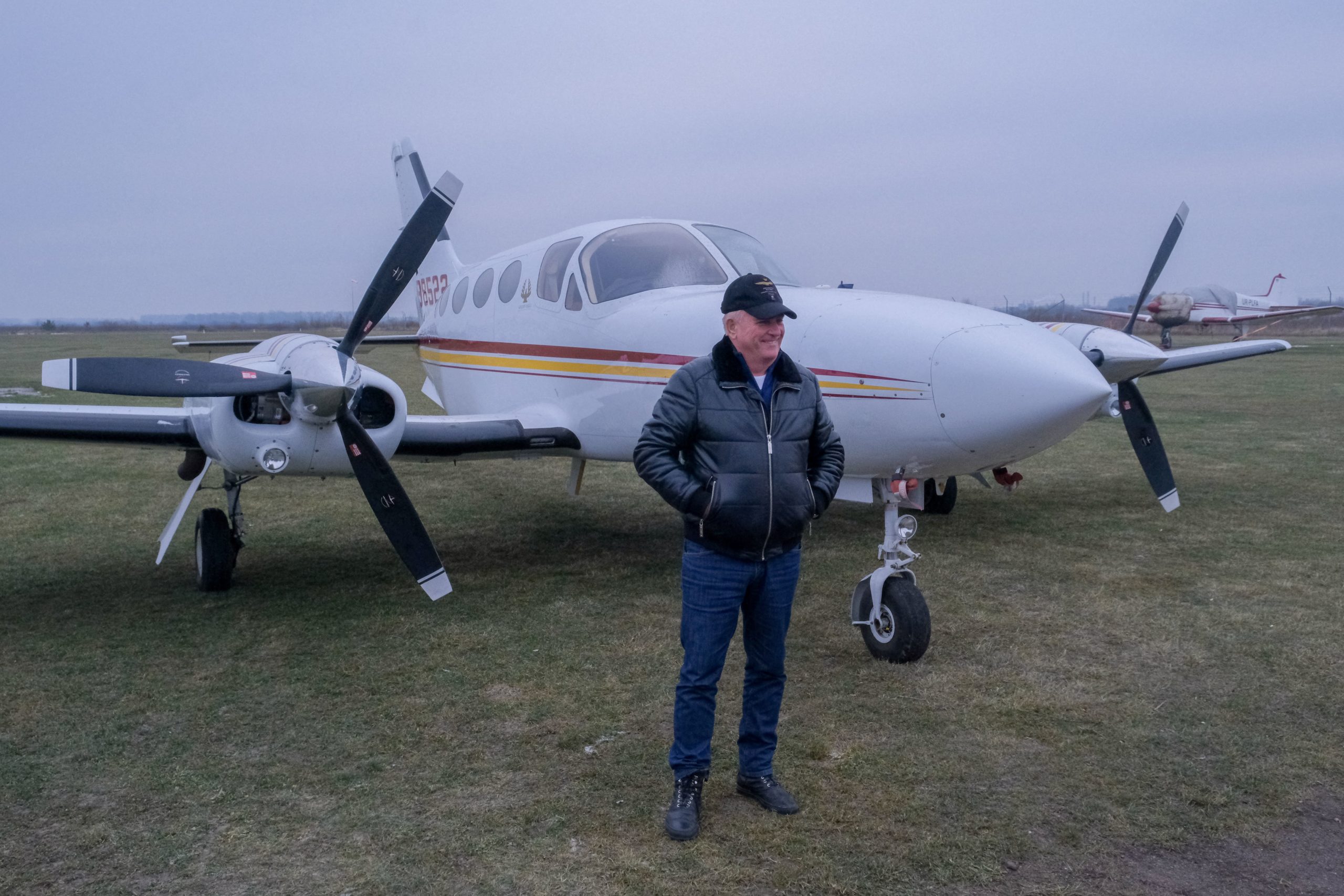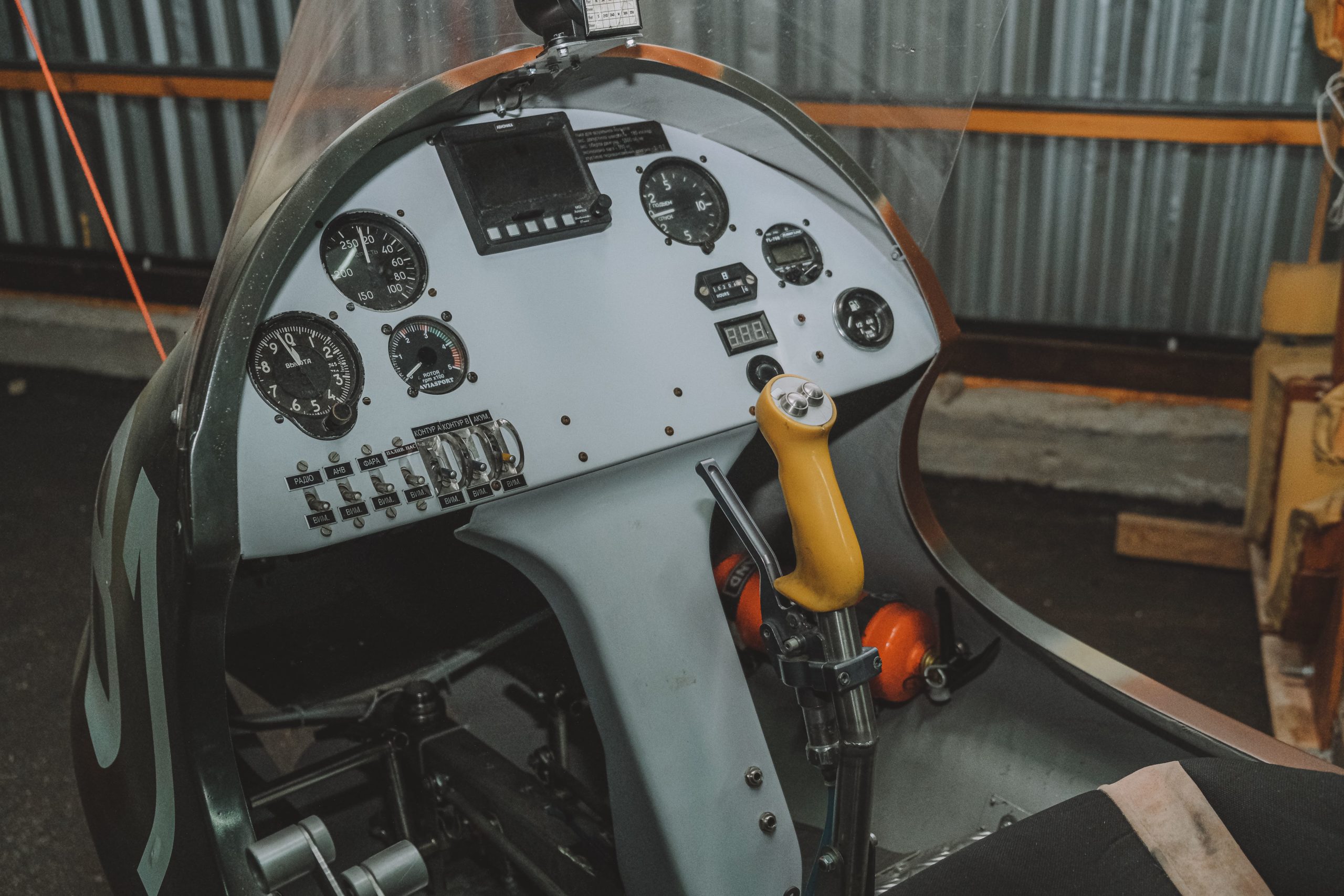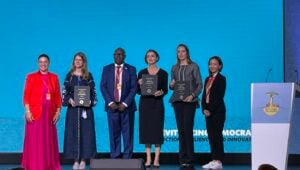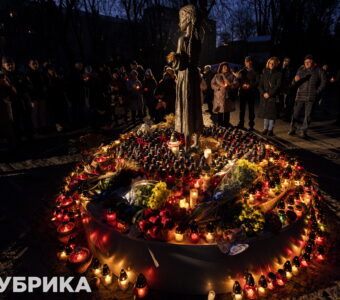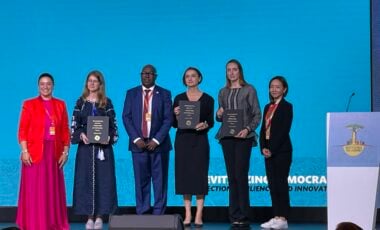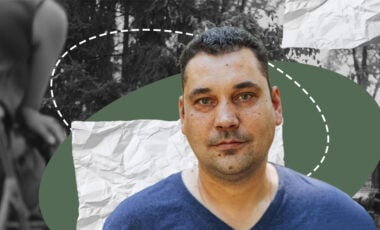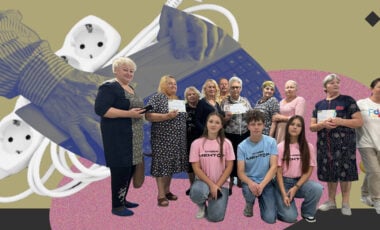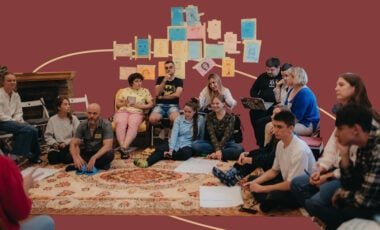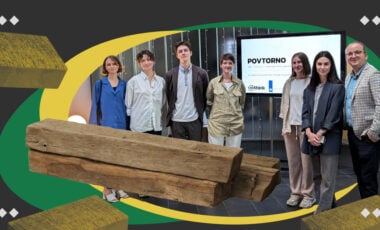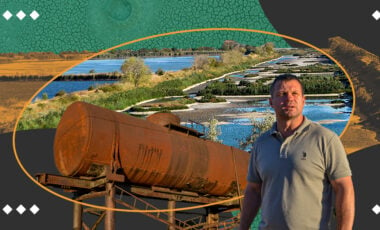How to make Zhytomyr the capital of small aircraft and turn waste into energy. Interview with Leonid Kriher
We talked about corruption, flights, the ability to take risks, and the Zhytomyr region prospects. And there are some surprises!
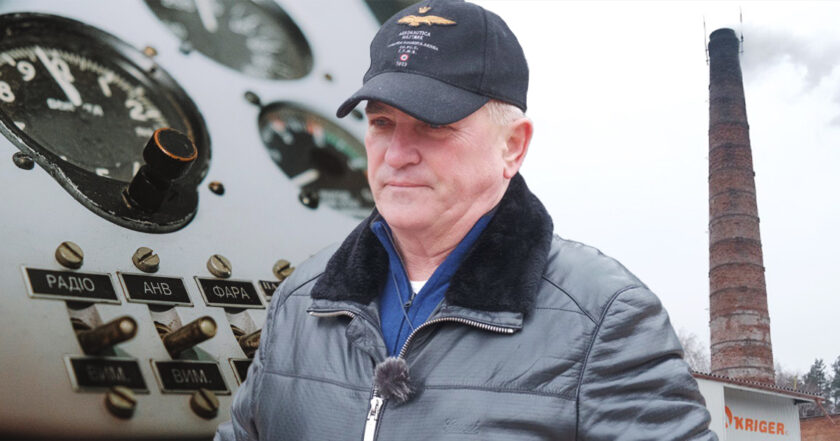
We met Leonid Kriher twice and in two different places: on the territory of his eco-friendly boiler house, where they turn non-recyclable waste into energy, and on a real airfield with the noise of engines and the wind whistling in our ears. However, even these meetings weren't enough to discuss everything in full. The former military pilot and well-known Zhytomyr entrepreneur, owner, and founder of the Kriger boiler plant, has something to share. We talked about his environmental initiatives, how to become a pilot in Ukraine, about creating an international airport in Zhytomyr, about charity, and his life rules. What came of it, read in our interview.
Heating from coronavirus and household waste
— At the Kriger boiler house in Zhytomyr, you convert waste into energy, enough to heat an entire regional hospital. How did you discover this solution? How does it work? This is an innovative device.
— Our equipment can operate on RDF, sorted solid domestic waste we mix with wood chips in a 25/75 ratio. But in the future, we plan to switch to 50/50 proportions. The calorific value of RDF is 4.5 megajoules, while ordinary wood chips give 2 megajoules. Think about how efficient that is. And today such a boiler house can provide heat energy to 25 thousand square meters of housing or, for instance, educational, and hospital institutions.
We've been actively involved in this project since 2014. Using RDF as fuel is unique for Ukraine and the entire CIS space. In Europe and Ukraine, disposing of non-recyclable waste is an enormous problem. Utilizing RDF by producing energy from waste is the solution. One boiler house can dispose of 8 thousand tons of waste per year.
Plus, it's a solution to environmental pollution. Ukrainian legislation is now changing: RDF is being recognized as one of the fuel types. This means it'll be possible to begin replacing coal and gas, which negatively affect the condition of the environment, with RDF. And our device also doesn't pollute the air: clean steam comes out of the pipes thanks to the filtration system.

This is how a boiler house operating on RDF and waste from the wood processing region looks like in Zhytomyr
— This is a large and expensive project. What motivates you to do it?
— Regarding the environment, not everything depends on the authorities, but on ourselves, on how we feel about it. If we wish to have a clean environment and deal with landfills, we need to act. But one of the key links in this entire process is the Kriger boiler plant and such facilities. For instance, you first need to develop a waste sorting habit and infrastructure. So far, Zhytomyr doesn't have its own sorting plant, and RDF is brought to the boiler house from Illintsi, Vinnytsia region. They are glad to cooperate, otherwise, such a sorting product like RDF couldn't be recycled anywhere ecologically.
Ukraine can provide itself with alternative energy sources. And it's not such astounded money as representatives of other states claim.
— You also recycle medical waste here, including "coronavirus" waste. At what pace?
— Today, medical institutions in the Zhytomyr region produce up to a thousand tons of medical waste, previously disposed of in the usual way. They took it to a landfill, or firms with licenses dissolved such waste, but in reality, there are very few disposal facilities in Ukraine. Our facility processes 170 kg of medical waste per hour. In the meantime, we comply with environmental standards and energy production. Today we accept medical waste from hospitals in the Zhytomyr region, but we are ready to accept it from all over Ukraine.
"First is corruption"
— Speaking about the regulations. How difficult is it to obtain licenses to run such a boiler house?
— Almost impossible. First is corruption. The second is the low level of training. Today the power vertical is in a state of complete imbalance. Many legislative acts have changed, relations have changed. When replacing ministers, each new minister builds in a new vertical, and new relationships. By and large, this is corruption. And middle-level specialists are looking for their interest in this. In addition, the discrepancy between the documents allows these specialists to come up with different variations and issue certain payments of different levels from this.
— Unofficial?
— Of course. Because they offer us a service for a lot of money, and we don't face bureaucracy. As soon as you don't follow their path, questions immediately arise.
— Would you like to name specific names from services that do this?
— Here we had the last most serious incident with the former structure of the sanitary and epidemiological service.
— Of the Zhytomyr region?
— No, central.
"Ukrainian boilers in Europe and England"
— How did you arrive at dealing with environmental issues?
— I entered the business in 1994, and in 2000, I bought a bakery and food equipment plant. This plant has never produced boilers.
Then conversations began that oil and gas would rise in price. With the collapsing USSR system, when money went out of circulation, it became irrelevant and costly to extend gas pipes or increase gasification volumes.
And our country is developing, and in the places with no gas, they require an alternative. And from there came the idea of boiler construction operating on alternative energy sources.
Then, when they began to deal with industrial boilers, the question came up about the environmentally friendly alternative.
— The boilers of the Kriger plant are even in Chornobyl.
— Yes, there's a boiler, heating almost all of Chornobyl and providing hot water. There they also plan a more serious development of this topic to give people the opportunity to bask in alternative fuels.
— What market share does Kriger currently occupy in the boiler market?
— There's no analytics since these issues are usually concentrated in the Ministry of Economy. We don't know. We have just produced over 3 thousand high-capacity boilers since 2000.
Besides, we export our boilers to Europe and England. Previously, we exported to France and Belgium, now mostly only to England.
"An international airport and innovation park will soon open in Zhytomyr"
— You entered the business after the war, right?
— I got into the business when I quit the army in 1994. My path started from being a military pilot in the war in Afghanistan and participating in the elimination of the Chornobyl catastrophe consequences. After this, I've been engaged in mechanical engineering and boiler construction.
— But the sky and flights haven't stayed in the past, have they?
— As it is, you're at the airfield, not at the plant (the interview takes place at the "Aviatic" private airfield of Leonid Kriher – ed.). Here's my heart and soul.
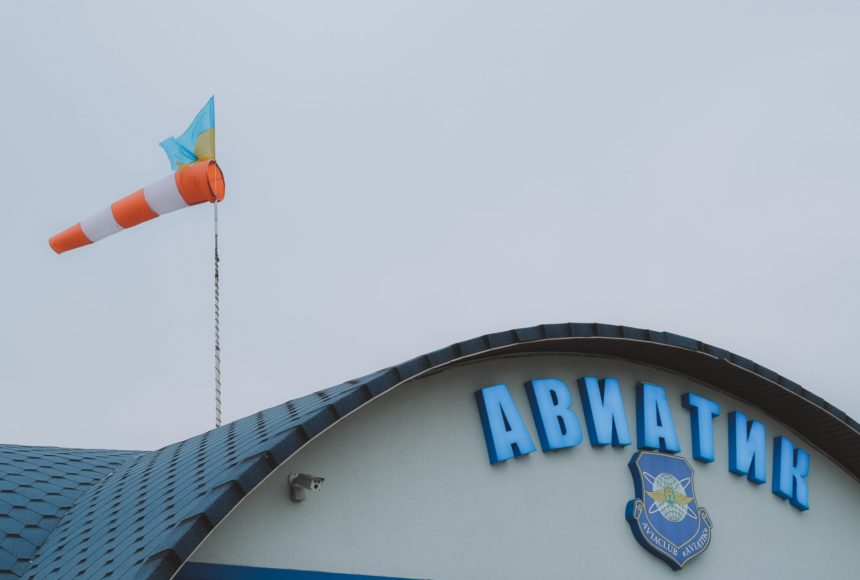
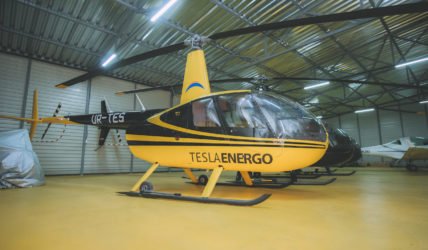
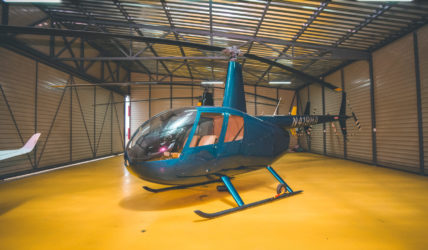
— So, being a pilot is a vocation remaining for your entire life?
— There are pilots who fly to earn money being in this profession. That is, it's a profession for making money, which could combine a favorite job and receiving income. I flew like this for 20 years, and for the remaining 23 years, I work to fly. It's a little different. This is a costly part, a hobby.
— Are you planning to develop it as a business direction?
— I am. The international airport, which I plan to build soon in Zhytomyr, requires systemic investments because everything needs to be certified and brought in line with security rules. It's turning into a stricter and more regulated fascination.
— Do you plan to open your flight training school?
— There are two schools here. My task is to create conditions for them to stay and run comfortably.
— You support the annual Koroliov aviation festival in Zhytomyr. Is it somehow connected with your vision of the city?
— Zhytomyr historically has always been an aviation city. During WW II, the airfield was exactly here. Then they built Ozerne. This is an airfield for bomber aircraft and fighter aircraft. And now it's one of the operating airfields of the Ukrainian Air Force.
And here Koroliov was born, and there's historical memory, the airport named after Serhii Koroliov. The flying meeting, which I've been organizing for 14 years, is also named after him.
Now the vector is moving towards opening an international airport, and it'll take place soon. It's important that the city and region are planning to build a serious, innovative industrial park near this airport. It will give a certain innovative boost. There are also plans to expand the name of Serhii Koroliov to the entire tourist area. People who've come to Ukraine should understand that Zhytomyr represents the aerospace industry and the Serhii Koroliov Museum.
— Is it a near-term matter?
— This matter is being fully implemented. Right now the concept has been developed, and we are already moving on to the phase of obtaining land resources for this occasion. That is, for the airport of international importance and industrial parks. Soon, the issues of financing, lengthening the strip, and expanding work should be resolved.
— How does the pandemic affect these plans?
— The pandemic, of course, left a certain mark, because processing documents even for certifying the airport has been extended several times. The pandemic also stopped the turnover of people who wish to fly on light airplanes, because face contact is inevitable. You won't fly while wearing a mask. And it's hard to keep the distance.
The pandemic has left its mark on all industries, and especially on aviation. World companies, American Airlines, Hansa, French Airlines, and the Emirates are suffering huge losses. This is a big problem.
— What about small, private jets?
— Meanwhile, the market for small aircraft sales really stirred up and revived. And popularizing the private pilot profession is skyrocketing. All flight schools are busy. And each school has about 20-40 cadets.
"Cost of an error on an aircraft is one and a half seconds"
— Is it difficult to learn to be a pilot in Ukraine?
— Not anymore. There are about ten flight training schools in Ukraine. There are two flight schools in Zhytomyr. The "Vulkan" school is new. It has new aircraft. And the second Ukrainian pilot school is based here at our airfield ("Aviatic" – ed.).
— How much do you need to study to become a pilot?
— To fly, you need to study at least 3 months in ground training, and flight training is at least 4 months. 7-12 months need to be devoted to studying to rise independently into the air. That is, to do a solo flight.
— There are many tragic cases of private piloting, like the ex-minister Taras Kutovoi, who crashed in a helicopter in the Poltava region. What do you suppose it's connected with?
— Preparing a graduate isn't up to the mark. We always want to teach a person to fly. But one should understand the boundaries of the student, his/her capabilities, and experience. It's the first thing.
And secondly, people still believe an airplane or helicopter is a means of transportation. Yes, it's a vehicle, but it doesn't allow mistakes. The cost of error is short. If it's conventionally some tenths of a second, 9, 8, 15 seconds in road transport, on a plane, the cost of an error is 1.5 seconds.
— And yet, even with experienced pilots, different things happen. Do you experience risky situations?
— Often extreme things happened.
— How many times?
— In my life, there've been 5 aviation incidents bordering on serious consequences.
— Aren't you talking about military service?
— In civil, amateur aviation.
— Did you want to stop after this?
— It's a way of life. If you're a doctor and have retired, you'll never leave your business, you'll still diagnose, understand, and try to help. The same is the pilot profession. It's the same as that of a doctor. The factor is that the doctor's range of use is wider. He/she may not be in office but will know and be able to suggest what to do, what restrictions to introduce. And the pilot definitely needs a tool. The instrument is my airfield and aircraft.
— If we are talking about private piloting and popularizing this profession, how much does it cost to master the business?
— A budget for becoming an airplane pilot today is near 9-10 thousand dollars for the entire process.
— How much does one flight cost?
— It all depends on the type of aircraft, fuel, and other parameters. A single-engine aircraft uses 17-18 liters of gasoline per hour of flight. If a plane's owner or pilot benevolently do it, a can of gasoline means an hour of flight. And if you convert it into money, then the average cost of an hour of flying on a light airplane is around $120.
"We'll develop Zhytomyr as a Mecca for small aircraft"
— How do you assess the profitability of the international airport project, considering the pandemic, for instance?
— You know, passion plays a more important role here. And even more so in a pandemic. For example, how would you assess the profitability of a stable? It's more of a hobby. The investment will never return.
— Are there any prospects? Is attracting large carriers perhaps planned?
— Right now, hiring private pilots who can perform a charter flight is gaining momentum. How does it work? Here's my plane, my time, I'll take you there. The quotation depends on the relationship between the pilot and the customer. This is a business. There's a demand on the market. People wish to have charter flights on small planes.
— What about negotiations with airlines, low-cost airlines, for domestic or international passenger traffic?
— Not planned. This is large aviation, and it doesn't provide for transportation to an aircraft ship and to a small aircraft airfield.
There's no point in expanding to large aviation by definition. My principal business is boiler construction. One of our hobbies is the aviation club, so we will develop small aircraft, develop Zhytomyr as a Mecca for small aircraft, and as a tourist Mecca associated with the history of aerospace through Koroliov. It's a trend.
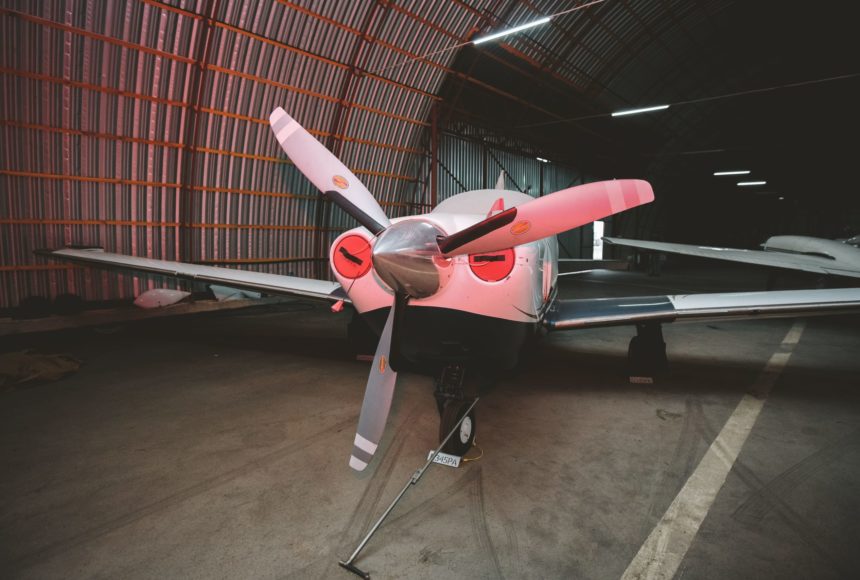
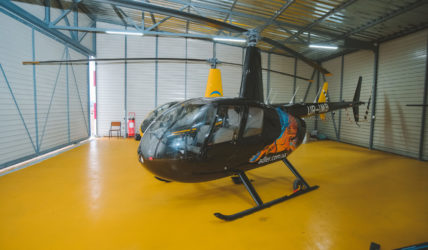
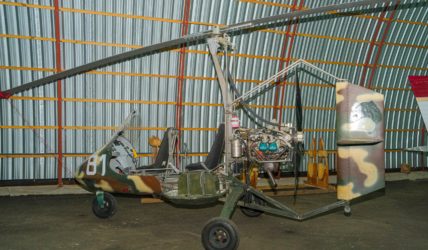
"Only from the plane, one can inform about the fire's scale"
— This summer and autumn became a time of horrific forest fires in the Zhytomyr region. You volunteered to help deal with this disaster, didn't you?
— We patrol and monitor forests. We help with this for free. Then we flew the routes, marked the points of burning, and reported about it.
— It turns out that small aircraft is a significant component in such conditions, isn't it?
— Of course. Only from the plane, one can see and inform about the fire's scale, growth rate, and exact coordinates.
It's very important since it's difficult to understand the place of combustion from the ground and estimate the area. It's much easier from the air.
— Now you are taking an active hand in the rule-making work of people's deputies and the executive branch on forest fires. What position do you defend? How can we prevent such tragedies?
— We need to change systemic approaches. Of course, everything is tied to forest workers. It's their task to develop measures to reduce the possibility of fire.
The second position is the State Emergency Service. It's their job to create precedents and control the workflow for foresters. Here we have joint responsibility. First, someone underworks, and then others correct. Therefore, programs must be developed together.
And, of course, involving science, which can give twice as many tools to prevent, track, and program measures to reduce the likelihood of this incident.
— Does involving small aircraft make sense here?
— When large-scale events happen, you can involve us. There are ready-made pilots, relationships between services. And we can provide a point solution to this problem.
Although foresters and the forest industry should have their own, at least small, aviation fleet, which could coordinate and carry out patrol and analytical flights.
— After participating in the clean-up of the emergency situation in the Zhytomyr region this year, do you understand what technical support the State Emergency Service has now? Why did you have to give planes? It's the business of the state, and not yours, attracted for free.
— The provision of SES was at zero. All aviation was taken from them, and there was no money not only for purchasing equipment but for carrying out preventive measures, analytical flights.
It's still hopeless. The decision to help was the goodwill of our club members, including me. With emergencies, territoriality is the most important factor. We have the largest region, a million hectares of forest, and we're the closest point, having some kind of mechanism of attracting small aircraft.
BLITZ
— Your life rules, top 3?
— The key principle of my life is the maximum pleasure per unit of time. It's first.
Second. The biggest difficulties are in our future because we're constantly torturing ourselves, searching for solutions and ways, but in reality, it complicates life a little.
Third, and probably the most correct: I never idealize anything. I set a challenge and enjoy the way to achieve this goal. The goal cannot be perfect. The chosen goal is just a route, and I must do the route beautifully.
— What's your goal?
— My goal is to live long and deliciously.
— Earlier you said, "Strength is born in struggle."
— This is the slogan of military helicopter pilots.
— It turns out that you can live with pleasure but in a struggle. How's that?
— The most important thing is the process. Greek wisdom says, "It's not a problem that's happening around us but how we feel about it." Everything that happens to a person is a consequence of their workload and splendor of living. The more events a person creates, the more often he/she can make mistakes. Therefore, the accident rate is the sum of the flight time. Same in life. The more you do, the more you risk.
Photo Yevhenia Yeshchenko, Rubryka
Also, watch the EcoRubric video report on how the Zhytomyr region turns trash and "coronavirus waste" into energy.




